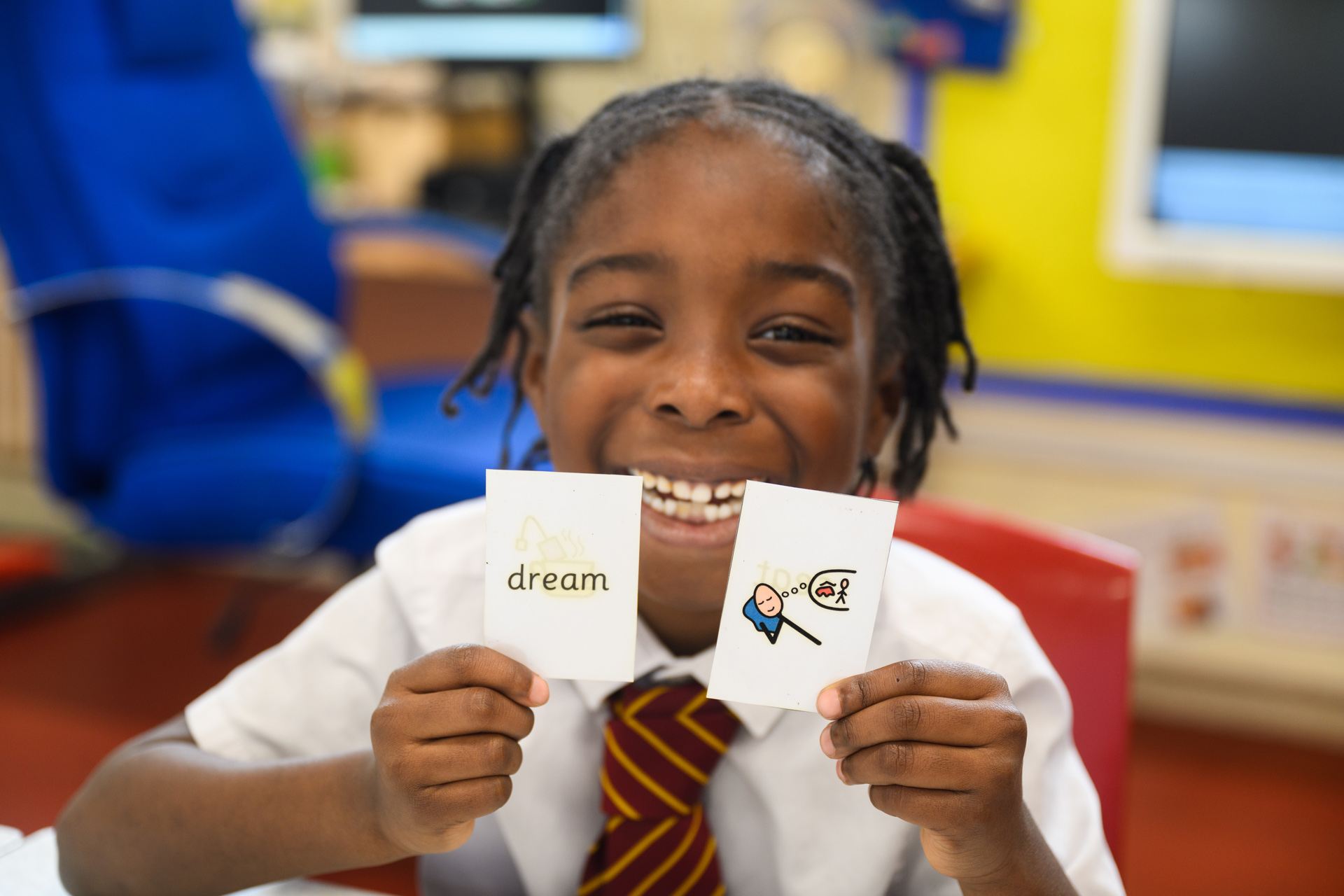Providing an enriching language and literacy experience is a crucial element if children are to develop as independent and motivated readers. In this blog our Education Lead, Julie Taylor explains that for children struggling with reading, context and comprehension and reading enjoyment are as important as the process of decoding.
In my blog post last year on phonics,(Beyond Phonics: Why children need to enjoy reading – The Children’s Literacy Charity (thechildrensliteracycharity.org.uk) I argued that while the rigour of phonics has improved reading standards overall, phonics teaching alone is not always enough to produce confident, resilient readers, whatever their background.
However, for children coming from disadvantaged backgrounds, providing them with an enriching language and literacy experience is a crucial element if they are to develop as independent and motivated readers. For children struggling with reading, context and comprehension and reading enjoyment are as important as the process of decoding.
It is this holistic approach to the acquisition of reading skills that is highlighted in an excellent new book: The Balancing Act: An Evidence-Based Approach to teaching Phonics, Reading, Writing by Charlotte Hacking (Centre for Literacy in Primary Education) and Dominic Wyse (Professor of Early Childhood and Primary Education, UCL). We have long admired the work of the CLPE and regard their resources as integral to the reading process.
As soon as children enter the Reception doors, the daily phonics lesson is now an established and predictable part of their routine.
Yet while last year’s PIRL (Progress in International Reading Literacy) Study showed that our children are now the ‘best readers in the western world’, DfE data for 2023 indicates that over a fifth (21%) of children did not meet the expected standard in the phonics screening test at the end of Key Stage One and nearly a third (32%) of children did not meet the expected standard in reading. The PIRL data also reveals that England is 42nd out of 65 countries in terms of reading motivation. It is this statistic which should concentrate minds on the need to take a more holistic approach to the acquisition of literacy skills.
As a specialist literacy intervention, we understand only too well the importance of effective phonics instruction in teaching pupils the relationship between sounds and the letters that represent those sounds and to understand the alphabetic principle.
It is not up for debate that phonics is a crucial component of reading instruction but it is not the only approach, nor is it universally the best way for every learner. Different children have different learning styles and needs, so a more holistic approach that includes phonics instruction alongside other wider word recognition strategies such as whole language, sight words, context clues, and comprehension skills is important.
Teaching the key reading skills using the formulaic, phonetically decodable books will of course provide opportunities to practice a child’s knowledge of sounds but we must not forget the role real books can play in providing context and contributing to comprehension.
For our youngest children, daily immersion in ‘real’ books, alongside phonics instruction, not only provides opportunities for children to read, apply their phonics skills and decode but also helps to develop comprehension and a love of books which will cement the foundations of a lifelong love of reading. As teachers, we have a responsibility to ensure that children develop the knowledge and skills to read with increased fluency which will lead to a greater depth of comprehension which in turn will increase reading motivation.
The approach taken in ‘The Balancing Act’ focuses on using high quality children’s texts to teach the key elements that are vital to learn to read and write, including phonics.
As the authors rightly argue: “With this approach, the importance of comprehending and composing the meaning of written language is carefully balanced with the acquisition of a range of skills and knowledge. This enables pupils to see the real purposes for reading and writing.”
“Meaning drives our approach to teaching reading and writing. It is the essence of human language, hence it should be the essence of teaching. Teaching about sounds is meaningless unless it is contextualized in words, sentences and whole texts.”
In both our Literacy and Reading Labs we take just such a balanced approach to the acquisition of literacy skills. Reading fluency is an essential component of our sessions: children learn and practice phonics and apply their skills in all contexts. Using a variety of techniques, children are taught how to make reading more meaningful and enjoyable and an exposure to high quality, diverse texts provides the engagement that will lead to under served children acquiring the literacy skills essential to be able to engage right across the curriculum.
Over our many years of experience in supporting children who are significantly behind in their reading, it is the both the depth of our phonics tuition combined with the richness of our language and literacy environment which makes a difference, enabling us to close the literacy gap and broaden horizons.
Find out more about our Literacy and Reading Labs in primary schools.

